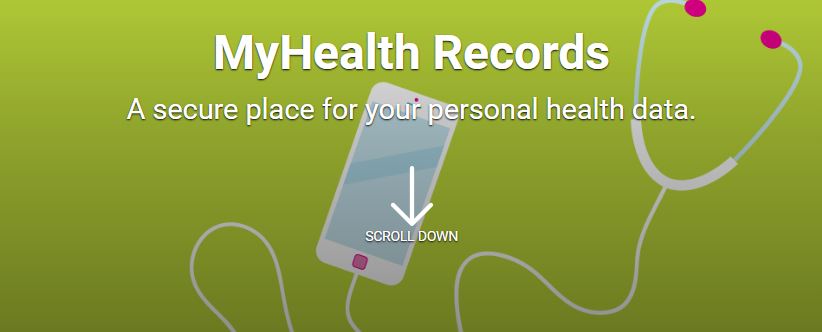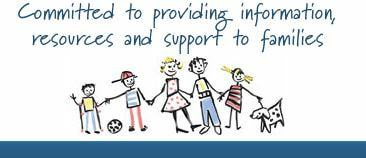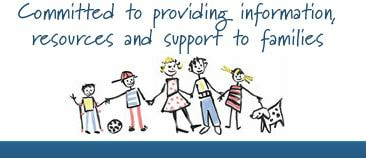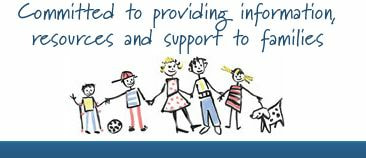|
Alberta now provides residents with access to their own personal health records online.
Visit their 'My Health Records' website to create your account: https://myhealth.alberta.ca/myhealthrecords Steps for creating your account: 1. Choose to either a) create a new user account 'start now' or b) login to your previously registered account 'login' 2. When creating a new account (get a verified "My Alberta Digital ID"), you will provide some personal information as well as your email address. A verification email will be sent to you that provides a link that will take you back into the registration site. Verify your identity using your Alberta drivers licence or Alberta ID card. Once your drivers licence or ID card info is entered into their system, you will be mailed an activation code. This will take approx 10 days to receive. Use this verification code you receive in the mail to complete the verification process. The online website is very clear and easy to follow. Enjoy easy access to your own health records.
0 Comments
Register at: community.hmhc.ca/sessions/
***Understanding Adolescent Stress and Anxiety*** April 2, 2019 @ 6:30 PM - 8:30 PM Manachaban Middle School A discussion on anxiety and stress in adolescents; what it is, what it may look like and how you can help your youth. This session will teach attendees strategies such as mindfulness and relaxation, and will also provide resources that can support caregivers and their youth. ***Cannabis: Legalization, Harms and Benefits*** April 3, 2019 @ 10:30 AM - Noon Alberta Children's Hospital - Theatre This session will start by briefly reviewing the history of cannabis use. The session will discuss the reasons cannabis is being legalized and the prevalence of its use. The benefits and harms of cannabis will then be reviewed and guidelines for youth will be presented. ***Opioids & Youth: What adults should know*** April 10, 2019 @ 10:30 AM - 12:30 PM Alberta Children's Hospital - Theatre This presentation will discuss the signs and symptoms of youth opioid abuse. Participants will learn how to recognize and respond to the symptoms of an opioid overdose, including how to access and when to use a Naloxone kit. A universal screener for opioid abuse and other resources will also be examined. ***Let's Talk About: Typical Speech and Language Development (2 to 5 years)*** April 11, 2019 @ 10:00 AM - 11:30 AM Crowfoot Public Library Program Room 2 Typical speech and language development for two to five year olds will be presented, as well as when and how to seek help. There are many misunderstandings of what 'typical' speech and language development looks like in preschool-aged children. We will set the record straight and discuss when to refer, and how the 'wait and see' approach often may not be appropriate. ***What Now?...Navigating Life After High School *Also Available as a Webinar*** April 11, 2019 @ 6:30 PM - 8:30 PM The Ability Hub This presentation will provide an overview of options for your teenager after high school, namely more school (post-secondary education or training), employment or a gap year(s). Typically, a gap year after high school for young adults with autism means sleeping late, gaming more and losing skills and confidence. Some autistic individuals are not quite ready for the rigors of university, college or work and need support to build readiness skills before taking that next step. This workshop will provide an opportunity to discuss strategies and resources to help strike the right balance between continued learning, part-time employment and social/recreational opportunities once high school ends. “I Am Still Right Here” : Non-Suicidal Self-Injury in Children & Adolescents
March 19, 2019 @ 7:00 PM - 8:30 PM Western Canada High School There has been an ongoing increase in the prevalence of children and youth who engage in non-suicidal self-injury (NSSI). It can be very frightening to have a child/ student who engages in NSSI, and adults can often have reactions that don’t really help. This session will focus on the types of NSSI, the reasoning behind the behaviour, and some ideas about how parents and teachers can help. We will spend some time on some case studies to provide examples and ample room for Q & A will be provided. Self - Regulation: for you & your child March 20, 2019 @ 10:30 AM - 11:30 AM Alberta Children's Hospital - Theatre While being a parent or caregiver of children can be a joyous and awe-inspiring experience; it can also be frustrating! This session will help you understand what happens in your brain when we are under stress, and why self-regulation of our feelings and actions is essential to helping children learn this critical life skill. Cannabis and your Youth: What you should know March 21, 2019 @ 6:30 PM - 8:00 PM Windsong Heights School Join Dr. Bulloch in a discussion about the history of cannabis use and reasons for legalization. Vaping vs smoking vs oils and lower-risk cannabis use guidelines will be introduced. Benefits and harms, especially for youth will be addressed with time for questions from participants. Let’s Talk Mindfulness March 26, 2019 @ 6:30 PM - 8:30 PM A.E. Bowers Elementary School This session will outline and discuss the main concepts in mindfulness and how understanding the brain can improve self-regulation. Using a hands-on approach this session will teach skills related to these concepts. This session will discuss how the brain influences thinking, emotions and behaviour. Improved self-regulation can lead to better focus in school, better cooperation with others and improved self-awareness and self-control. To register for these programs & more, go to: community.hmhc.ca/sessions/ Positive Psychological Health - What Parents Can Do!March 12, 2019 @ 6:30 PM - 8:00 PM
Bishop Grandin High School Many parents worry about their teen’s psychological health - and if not their own teens, than they worry about who they hang out with, what they spend their time doing, and exactly how they are feeling. Teens are well-known for appearing not to want to talk about their feelings, especially to parents. This workshop will provide an overview, based on interviews with adolescents, of what is on kid’s minds, how they might be feeling about things like anxiety, depression, social pressure, screentime, and other areas – and perhaps of most value to parents, how to engage with teens so they actually communicate! Why Reading MattersMarch 13, 2019 @ 11:00 AM - 12:30 PM Alberta Children's Hospital - Theatre Literacy is the path to prosperity. In this session, you will learn about the literacy landscape in Canada, what current research says we need to be doing to support children to become successful readers, and how to develop a reading culture in your home, school, or organization. Adulting: It’s harder than it looks! Helping your child with autism be successful after high school – including university and employment.March 13, 2019 @ 6:30 PM - 8:30 PM Education Centre Becoming a legal adult at 18 years in Alberta and graduating from high school are two transition points that can be challenging – even scary for individuals on the Autism Spectrum and their parents. Developing a plan for “life after high school” can help to maximize the chances your child will be successful as they pursue continued education (post-secondary studies) and employment.This session will support families and provide valuable information about the following topics: How to create a shared vision for your child’s future Understanding next steps after high school Managing health and mental health issues in adulthood Developing pre-employment skills Legal and financial issues including guardianship and program funding at age 18 Discuss how the Launch Program might support your child as they transition to adulthood Launch Program https://sinneavefoundation.org/sinneave_work_item/launch/ Invisible: Why Do So Few Girls and Women Get an Autism Diagnosis? *Also Available as a Webinar*March 14, 2019 @ 6:30 PM - 8:30 PM The Ability Hub This presentation will discuss some of the reasons why more boys than girls receive an autism diagnosis, common co-occurring diagnoses and misdiagnoses that teens and adult women receive, strengths and struggles for autistic women across the lifespan, and finally screening and diagnostic tools specifically designed for females. If you or your daughter have been diagnosed with autism or are wondering about an autism diagnosis this session will provide helpful information and resources. Invisible: Why Do So Few Girls and Women Get an Autism Diagnosis? *Also Available as a Webinar*March 14, 2019 @ 6:30 PM - 8:30 PM This presentation will discuss some of the reasons why more boys than girls receive an autism diagnosis, common co-occurring diagnoses and misdiagnoses that teens and adult women receive, strengths and struggles for autistic women across the lifespan, and finally screening and diagnostic tools specifically designed for females. If you or your daughter have been diagnosed with autism or are wondering about an autism diagnosis this session will provide helpful information and resources. To register: http://community.hmhc.ca (http://community.hmhc.ca/sessions/) or contact CES@AHS.ca to register. ALL attendee’s will get a workbook and certificate for coming. |
Archives
March 2021
|
|
About // Services // Patient Information // Appointments // Other Healthcare Providers // News // The Team // Contact // Survey // IUD Services // Immunizations // Antenatal care // Mountain Woods Health Services
|
|
Affiliated with: |
Website by Inward Reflection
|




 RSS Feed
RSS Feed



